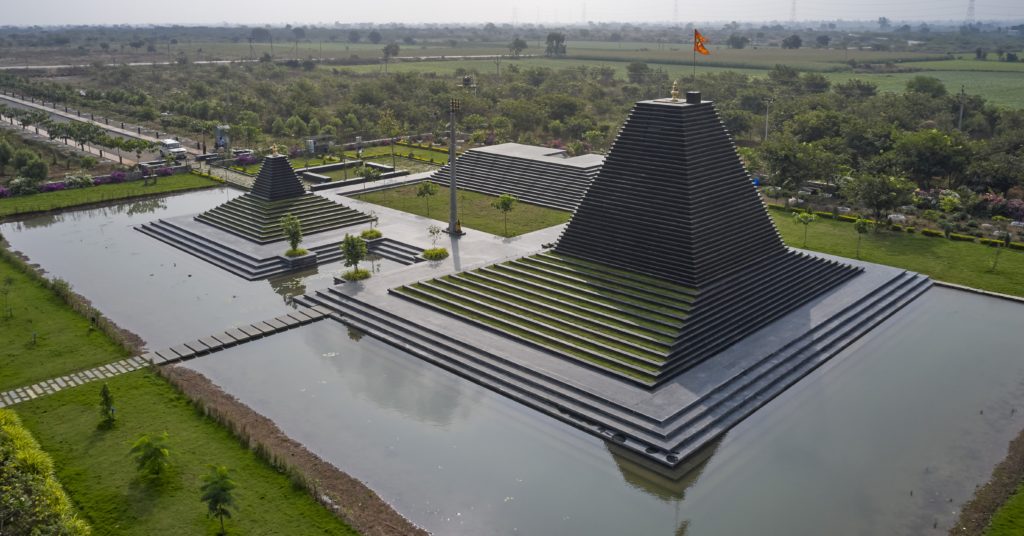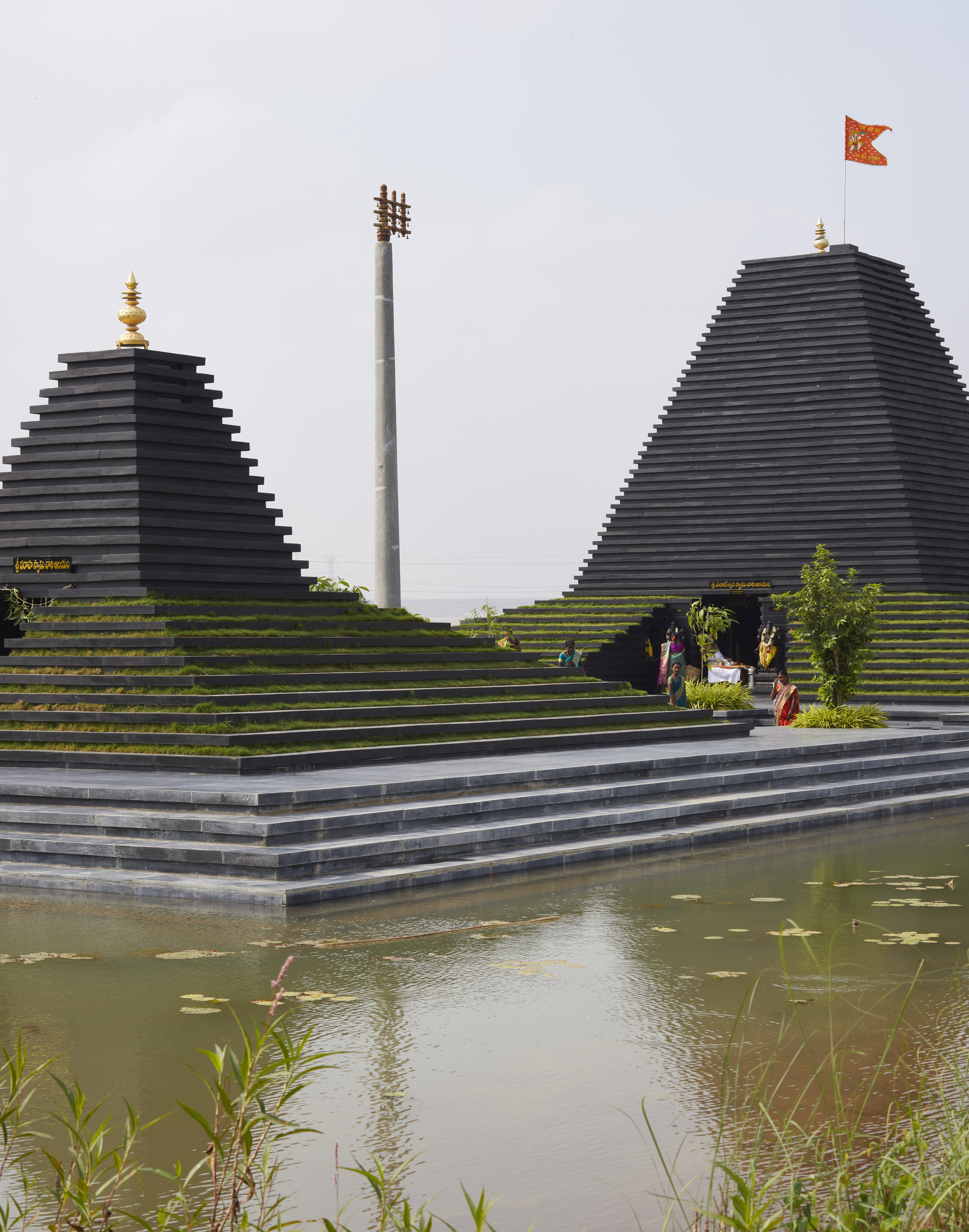365telugu.com,online news,NANDYAL, JUNE 27, 2020: JSW Cement, India’s leading producer of Green Cement and part of US$ 14 billion JSW Group, has constructed a new Balaji temple in Nandyal, Andhra Pradesh. Located in Bilkalguduru village, the newly constructed temple has been built using black limestone and spans across 2.5 acres. The primary architecture of the Balaji temple embodies the long-standing tradition of Indian temple typology and the design is based on the 10th century temple of the same deity located at Tirupati. The new Balaji temple at Nandyal comprises two shrines of balaji and varahaswamy in the form of black limestone ziggurats. At JSW, the Balaji temple project was led by Mrs. Anushree Jindal and mandated Indian architect Sameep Padora of Sameep Padora & Associates (sP+a) as its lead architect. Funded through the CSR spends of JSW Cement, the company has dedicated the new Balaji temple to the community of Nandyal.Through this temple project, JSW Cement’s aim was to bring together the community’s cultural expectations for a temple as well as revitalise the water source that had run dry since many years. The area surrounding the location identified for the temple is known for its cotton and chilli farms. Thus, revitalizing the water source was essential to restart the agricultural economy of the region.
According to Mrs. Anushree Jindal of JSW, “JSW Cement believes in collaborating with local communities to empower them for a better future. I feel blessed and privileged to have facilitated the creation of a pious, safe haven of worship for the local community of Nandyal. Parth and I are pleased to dedicate the new Balaji temple to the local communities & devotees of Lord Venkateswara. This temple is designed to offer a tranquil and peaceful social space for the local community members. The area where this temple is constructed has a natural canal which had gone completely dry. We were very clear that the new temple should be designed thoughtfully with a view to revitalize the canal and bring its water back for the benefit of local villagers residing in this area.”Commenting on the temple’s design Sameep Padora, Founder of sP+a said, “We are thrilled that JSW Cement mandated us to design and construct such a prestigious temple project. While working with the Balaji’s temple’s traditional planning principles, the core design idea was to address the socio-cultural expectations of the surrounding residents while developing an ecological framework to revitalize the ground water source.”The ecological restoration associated with the construction of the Balaji temple, began with recharging of groundwater. The dry low lying space in the temple vicinity was consolidated into a water retention pond, by redirecting water overflow from a nearby limestone quarry. The water from the limestone quarries led to a recharge pit or ‘kund’, the banks of which were re-imagined as a social space, in the form of a steps or ghat. The idea of a ghat bridging the relationship of land with water is a significant part of the quintessential Indian spiritual experience as is seen in the ghats of the ancient city of Benaras.

The Tirupathi temple in Andhra Pradesh was studied for the zoning of three main elements: the Balaji shrine, Varahaswamy shrine and Pushkarini. The temple is designed as a self-supporting monument by using locally available black limestone slabs to form the main body of the temple. The banks of this waterbody can also be used as a community space in the form of a ghat. Furthermore, horizontal layers or corbels have been used as an abstract of the architecture of Hindu temples to achieve its massive verticality. The temple beautifully emulates certain motifs of a typical Hindu temple, not replicating it completely but by reimagining it through its constituent parts.JSW has been focusing on preservation and restoration of Indian Art & Heritage as part of its CSR initiatives. Over the years, it has restored 15th Century Chandramauleshwar Temple in Hampi, Karnataka, Keneseth Eliyahoo Synagogue in Mumbai, Maharasthra, Restored the Krishna Temple in Hampi in Karnataka, established Kaladham Art Village in Bellary, Karnataka among others. JSW believes that a community’s history & monuments are a source of great pride for its members. These monuments are symbols of that legacy and preserving them through these restoration efforts plays an important role in empowering the local communities.

